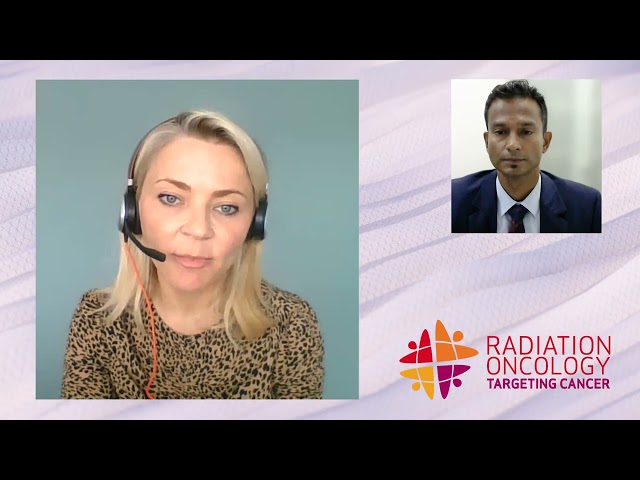Pancreatic Cancer Treatment in AU and NZ
The pancreas is an eggplant-shaped organ, which is part of the digestive system.
People get pancreatic cancer when cells grow abnormally in the pancreas.
Pancreatic cancer is sometimes called a silent disease because it’s often found late.
Radiation Therapy and Pancreatic Cancer
The best person to talk to about radiation therapy for pancreatic cancer is a radiation oncologist. A radiation oncologist is a specialist doctor who is part of the team that takes care of people having radiation therapy.
You can ask your doctor for a referral to a radiation oncologist to learn if radiation therapy is an option for you.
The Treatment Team
Doctors make a treatment plan for each person based on:
- the type of cancer
- where the cancer is
- what other treatments have been tried
- the person’s health.
The type of treatment a person gets is worked out by a team of doctors and health professionals often called a Multidisciplinary Team.
A highly trained radiation oncology team takes care of people having radiation therapy. This includes radiation oncologists, radiation therapists, medical physicists and radiation oncology nurses.
Treatment for Pancreatic Cancer
Treatment for pancreatic cancer may include radiation therapy, surgery, chemotherapy, or a mix of these.
Types of Radiation Therapy Used for Pancreatic Cancer
External Beam Radiation Therapy (EBRT)
This is the most common type of radiation therapy used for pancreatic cancer.
Radiation oncologists often use Volumetric Arc Therapy (VMAT), which is an advanced type of External Beam Radiation Therapy (EBRT), to carefully deliver radiation to the areas that need to be treated.
This advanced technique allows the radiation oncologist to target the radiation on the cancer while limiting radiation to healthy parts of the body.
Radiation therapy is important for treating pancreatic cancer. Radiation therapy targets cancer cells in the pancreatic area to destroy them or prevent them from growing further.
Radiation oncologists sometimes do radiation therapy after surgery to kill any last cancer cells and reduce the risk of the cancer coming back. This is called adjuvant therapy.
Radiation oncologists can also do radiation therapy before surgery to shrink the tumour and make it easier to take out. This is called neoadjuvant therapy.
For people with advanced cancer that can’t be taken out, radiation therapy helps with pain and blockages in nearby organs.
Treatment teams also combine radiation therapy and chemotherapy to improve how well they work. They can do this before or after surgery and to improve a person’s quality of life.
People usually get radiation therapy daily from Monday-Friday for up to 6 weeks. The treatment team works out the right number of treatments for each person.
Stereotactic Ablative Radiotherapy (SABR)
SABR is a targeted form of Therapy. It gives high doses of radiation to the cancer while protecting healthy body parts.
SABR is painless and no surgery is needed. It is very safe and effective.
For people with advanced pancreatic cancer, radiation oncologists can use SABR to manage the cancer and reduce pain and other symptoms.
People usually get 1-5 treatments.
SABR isn’t suitable for everyone, but radiation oncologists can use it for some people. SABR is a specialised treatment that is only available in certain centres. You can talk to your radiation oncologist to learn more.
In the interview below SABR expert Professor Shankar Siva explains how it works.

SABR A Revolution in Radiation Therapy Interview with Professor Shankar Siva
General Information About Side Effects of Radiation Therapy
Radiation therapy is more effective with fewer side effects than ever before.
Recent advances mean radiation oncologists can effectively treat the cancer while getting less radiation on healthy body parts. This means much fewer side effects.
Side effects from radiation therapy vary between people, even for those having the same treatment.
While some people feel no side effects, some feel mild side effects, such as tiredness or skin redness during and/or just after treatment. These usually get better within a few weeks.
The treatment team will offer advice and medicine to help with side effects.
Serious side effects that start later (months to years after the radiation therapy) are rare.
Before starting treatment, your radiation oncologist will talk to you about side effects and answer your questions.
The side effects of radiation treatment can be split into 2 groups:
- Early side effects which occur during and shortly after radiation treatment.
- Late side effects which can occur months to years after radiation treatment.
For more information, go to the Potential Side Effects page.
Early Side Effects of Radiation Therapy for Pancreatic Cancer
Fatigue: Feeling tired is common during radiation treatment, as the body works to heal.
Diarrhoea: Radiation can upset the digestive tract. This can lead to loose or watery poo.
Nausea and vomiting: Some people feel unwell in the stomach and may vomit or have indigestion.
Loss of appetite: Some people feel less hungry.
These side effects are usually short term and can be helped with medications or lifestyle changes. The treatment team can provide advice to help you manage side effects.
Late Side Effects of radiation Therapy for Pancreatic Cancer
Late side effects vary between people and can happen a few months to a few years after treatment.
These side effects may never occur, occur once, continue over time, or come and go.
Bowel problems: Radiation therapy can cause long-term bowel issues such as diarrhoea, constipation, cramping or changes in bowel habits. In very cases radiation can cause a bowel blockage or bleeding
Reduced kidney function: This is rare but can occur if the kidney gets a larger dose of radiation.
Pancreatic dysfunction: This is when the pancreas doesn’t work as well. It can cause things like diabetes or trouble digesting food, which can cause stomach pain, weight loss, or diarrhoea.
Liver dysfunction: This is when the liver doesn’t work as well. It can cause people to pee more often and feel thirsty and drink more. It can also cause tiredness, headaches, itchy skin or stomach pain.
Secondary cancers: There is a very small risk of getting a second cancer later in life.
People treated for pancreatic cancer should see their doctor regularly and keep an eye out for long-term side effects.
Other Useful Resources for Pancreatic Cancer
Find additional information about cancer types, research groups, and support groups.
Radiation Oncologist
The best person to talk to is a radiation oncologist. You can ask your doctor for a referral to find out if radiation treatment is right for you.
GPs and Health Professionals
Information for any health professional involved in a patient's cancer care with a particular focus on primary care providers.
Talking to Your Doctor
Your GP or other doctors in the cancer team can organise a referral to a radiation oncologist.
Treatment Centres
Search and find your closest Radiation Oncology Treatment Centre.
